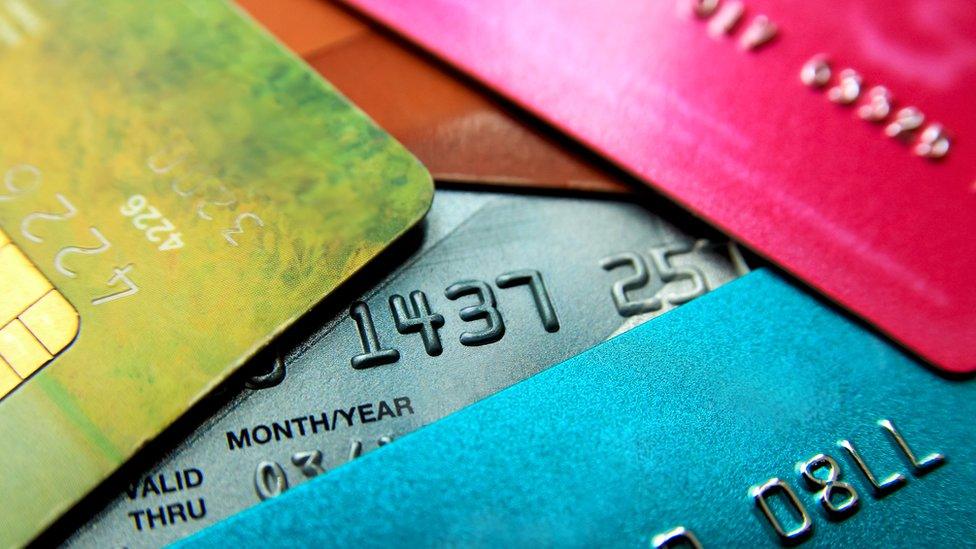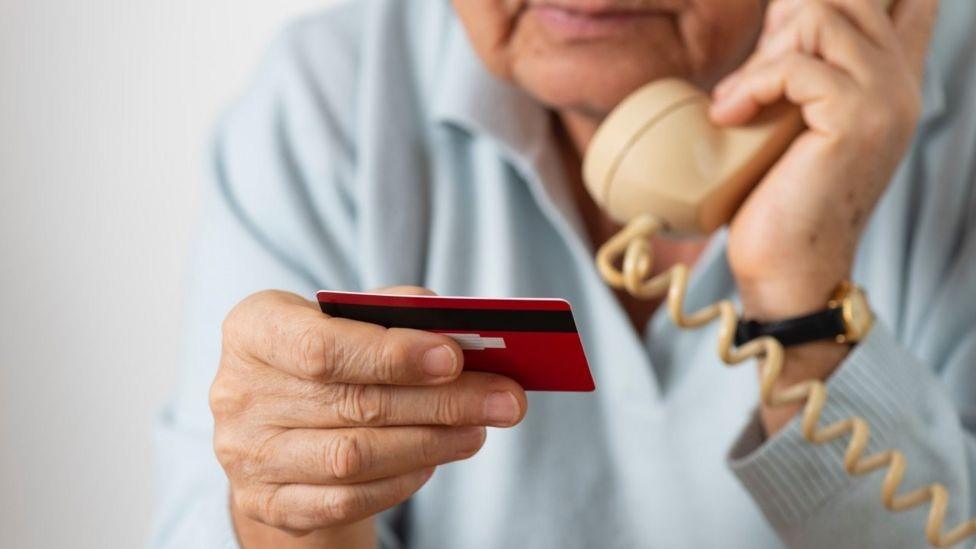Bid to use criminal cash to refund scam victims
- Published

A policy of refunding scam victims using money from criminals' frozen bank accounts would be popular, a survey suggests.
The government is considering a proposal from banks that criminally-obtained funds are used to pay back other victims.
Three-quarters of those asked in the survey said they supported the idea.
But the amount frozen in these accounts would be vastly insufficient to cover the bill.
Pandemic scams
Last month, the BBC revealed data showing that various kinds of scams had surged during the coronavirus pandemic.
Online shopping scams, in which fraudsters posted bogus adverts for pets, cars and caravans, were up.
The YouGov survey of 1,700 people suggested that one in four adults are being bombarded with scam attempts on a daily basis, rising to nearly a third of over-65's.
It also suggested there would be public support for the idea - first proposed by banks - that suspected criminal funds should be used to repay victims, although this would fall far short of the hundreds of millions of pounds needed.
While total fraud in the UK reached £1.26bn last year, the amount in these frozen accounts was last estimated to be £130m.
'Puppy scammers left me heartbroken'
Romance scams have also risen during the Covid crisis, affecting men and women of all ages.
Consumer group Which? said the true scale of the crime was likely to be much higher as many victims were too embarrassed or upset to tell the authorities.
In a report on economic crime, external by the government and the banking trade body, UK Finance, published last month, ministers said they were looking into the idea of using seized funds for reimbursement.
"The government is also working with the financial sector to unlock suspected criminal funds held in 'frozen' accounts across the financial sector," the report said.
"We will consider how these funds could be used, including whether suspended funds can be used to reimburse victims of fraud."

The burden of customer refunds when criminals hack into accounts to steal money falls on banks.
A code agreed between them, affecting customers of 19 financial brands, was signed in 2019 to ensure those caught out by so-called push payment fraud are refunded if they have done nothing wrong.
These are scams when victims are tricked into transferring money to a fraudster in the belief they are a legitimate trader or service.
However, banks failed to agree on a scheme designed to create a permanent, central pot of money to use for refunds.
Instead, they decided to pay for these reimbursements individually.
Related topics
- Published30 April 2021

- Published12 May 2021
